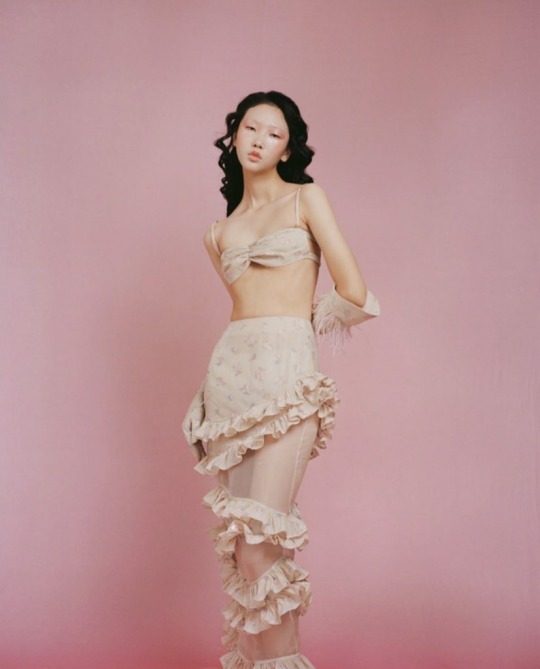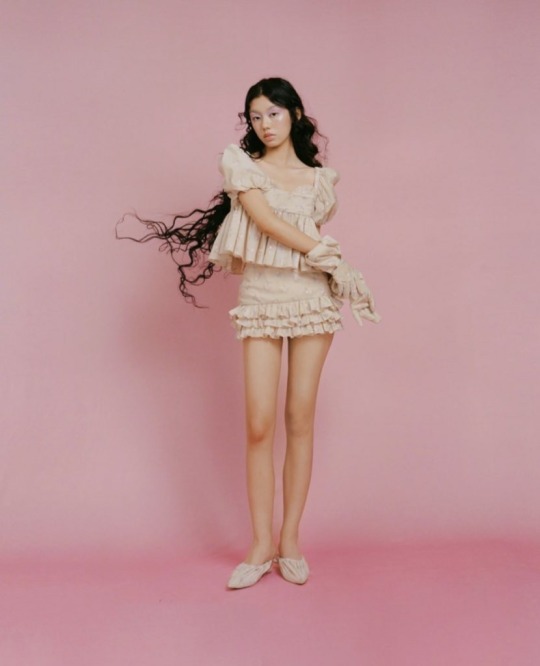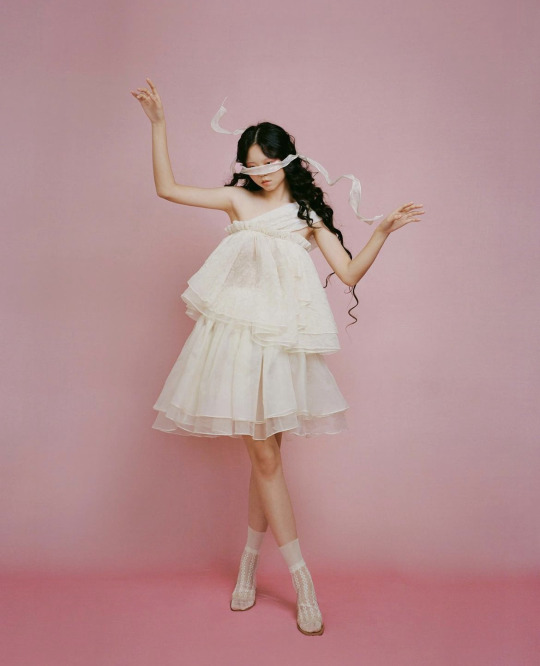#pseudo/poems
Note
Any chance you could explain the five poem references in the chorus of 山外? 👀👀👀
(I love love love ur tls and the accompanying notes for context/elaboration, you put so much thought and effort into them and it shows!! Just read ur tl of Hen Bie and cried ;-;)
i'll take any chance to obsess over classical chinese poetry so i'd be delighted to :D ty for finally giving me the motivation to flesh out my explanations of them in my translation bc i've been too lazy to do it before this, but also you might regret having asked me this by the time you finish reading this post lol
also i'm rly rly glad you liked my tl of henbie! the last line still gives me ulcers every time i think about it, it was so difficult 😭
anyway so 山外 chorus!! it has eight lines split into two stanzas and the first three lines of each stanza is a poetic reference which is absolutely insane to me?? lyricist大大 真是太佩服您了
the first line of both stanzas is 山外青山楼外楼 / beyond the mountains are yet more verdant mountains—beyond the towers are yet more towers. i translated it a bit more literally to get the parallel structure, but a more figurative translation might be something like an unending expanse of verdant mountains—the buildings stretch on for so long one cannot tell where they begin or end.
this line comes from the 七绝 / seven-character quatrain 《题临安邸》 / on the subject of the inns and residences in lin'an by song dynasty poet 林升 lin sheng. (note: 邸 here refers to an inn, but i've also translated it as residence to emphasise lin sheng's criticism of the government officials who have come, in his view, to visit lin'an in this poem.)
the poem goes something like this (aka, have yet another very rough tl):
山外青山楼外楼, / beyond the mountains are yet more verdant mountains—beyond the towers are yet more towers;
西湖歌舞几时休? / at what hour will the singing and dancing on the western lake come to an end?
暖风熏得游人醉, / the fragrance wafting through the warm breeze sweeps the sight-seers into a drunken stupor;
直把杭州作汴州。 / they have simply taken hangzhou to be once-glorious bianzhou.
context! this poem was written after the fall of the (northern) song to the jurchen invaders. as the capital of the song dynasty, bianzhou (known today as kaifeng) was captured and sacked by the jurchen, and the song rulers who managed to escape fled to southern china, whereupon they made hangzhou the capital of the southern song. the emperor gaozong, the only one of the imperial house who wasn't in bianzhou at the time, took the throne in lin'an, which he favoured for being a 人间天堂 (paradise on earth, basically). the officials then proceeded to engage wantonly in song and dance—that is, in a life of degenerate extravagance and debauchery, and it got to the point where hangzhou was labelled a 销金锅 (lit. "a pot of melting gold"), which is now used to describe a place in which huge amounts of money and gold are frittered away. it was this exact attitude that this poem is criticising lol.
(i'm putting the rest under a read more because i am apparently incapable of shutting up)
the second line is 不如黄鹂鸣翠柳 / it cannot compare to the singing of golden orioles in jade-green willows. this line is adapted from the first line of the third (and most famous) of 杜甫 du fu's 《绝句四首》 / four quatrains: 两个黄鹂鸣翠柳 / two golden orioles sing in jade-green willows.
some background info on du fu because the guy is just ridiculous: he's known as one of the three greatest tang dynasty poets, aka the triumvirate 李杜白 lidubai, which stands for 李白 li bai, 杜甫 du fu, and 白居易 bai juyi. depending on who you ask, either he or li bai is the greatest classical chinese poet of all time. he's known as either the 诗圣 / poet-sage, for the way he engages with morality in his poetry, and also the 诗史 / poet-historian, because of his extant poetry (and it's a truly insane amount, btw, i mean, close to 1500, which is wild for a guy who lived in the 8th century), many were intended as political commentary and therefore indirectly shed light on the effects felt by the common people. anyway, he's also extremely notable for his range and technical excellence, because given just how many poems he wrote, it's kind of understandable that he ended up writing in all the poetic forms available to him at the time. but also wow.
the most incredible part to me about him is that he specialised in 律诗 / regulated verse (about two-thirds of his extant poetry is in this form) which is. holy shit. this form is incredibly demanding, and it's absolutely astounding just how easy du fu makes it look. i won't get into it here because i've already rambled enough about him, but if you watched shl, part of his poem 《登高》 / climbing the heights, which is one of the best existing examples of 律诗 out there, was quoted in the lyrics for 天涯客, and i explain it in the footnotes of my translation.
anyway, onto the actual poem! the context is that it was written after the an-shi rebellion was quelled; coincidentally, it was this exact rebellion that greatly influenced du fu's writing. after learning that his good friend yan wu, the governor-general of chengdu, had returned to his post, du fu too returned to his home in chengdu in great spirits. upon seeing the fresh and vivid spring scenery, he was seized by the impulse to compose a poem about it. the reason it's just named 绝句 / quatrains is because he didn't think of a title before writing it and was too lazy to come up with one afterwards (mood).
the couplet that's quoted also uses parallelism, btw. specifically:
两、一 -> number
个、行 -> measure word
黄、白 -> adjective: colour
鹂、鹭 -> noun: type of bird
鸣、上 -> verb
翠、青 -> adjective: colour
柳、天 -> noun: nature
(yeah he writes like that. constantly. how, you ask? excellent question, i don't know either.)
anyway, the full poem, as roughly translated by me:
两个黄鹂鸣翠柳, / two golden orioles sing in jade-green willows;
一行白鹭上青天。 / a line of white herons rise into the blue skies.
窗含西岭千秋雪, / within the window—snow atop the western ridges, gathered over a thousand autumns;
门泊东吴万里船。 / outside the door—vessels in anchorage, come ten thousand miles from eastern wu.
and now, finally, the third line! this one isn't a line from a poem, but the title of one: 春江花月夜 by tang dynasty poet 张若虚 zhang ruoxu, which i've translated as flowers by the spring river on a moonlit night. i won't be translating the full poem because it's incredibly long and this post is long enough as is, but it's gorgeous. it was praised by the poet 闻一多 wen yiduo as being 诗中的诗,顶峰上的顶峰 / the poem of poems, the pinnacle of pinnacles, and is also considered to have 压全唐 / surpassed the entirety of the tang [in poetry], which is insane considering just how many incredible poems/poets came out of the tang dynasty, aka the literal golden age of chinese poetry (if you recall, 李杜白 lidubai were all tang dynasty poets).
this is a 宫体诗 / palace-style poem, and each character in the title is described in great detail: 春 / spring, for the gentle and exquisite spring; 江 / river, for the winding and flowing river; 花 / flowers, for the hazy but resplendent flowers; 月 / moon, for the glow of the distant moon reflected in water; and 夜 / night, for the tranquil and melancholic night.
other than the scenery, this poem also explores the enigmas of the universe and human existence—specifically, how although each of our lives are short and limited, the existence of humanity as a whole stretches on unendingly, much like the bright moon that rises over the river day after day. it then goes on to describe the yearning of a wife for her travelling husband (fun fact: he's travelling by boat on the river), and the last line in particular is very, well. it's very li lianhua-core, shall we say? 不知乘月几人归,落月摇情满江树。 / i know not how many will return with the moonlight; the falling moon sways with the sorrow of parting, spilling it over the riverside trees. yeah. :)
next up is a quote from tang dynasty poet 王勃 wang bo, who wrote one of my absolute favourite couplets of all time, it literally rewrote my brain chemistry omg: 海内存知己,天涯若比邻。 / as long as there remains someone who knows me within the four oceans, we will be as neighbours even at the edges of the earth. (i definitely shoved it in here bc it's relevant to this post since zeng shunxi quoted it in his farewell letter to fang duobing and absolutely not bc i just wanted to :D)
anyway the ACTUAL quote is 物换星移几度秋 / landscapes change and stars shift—how many autumns have passed? it comes from the poem 《滕王阁诗》 / prince teng's pavilion: a poem, which is considered a founding piece of tang literature. in days of yore, this pavilion was constructed by prince teng, son of the tang emperor gaozu, and was often used by him to host great feasts and guests, but now that he's now long gone, the only thing left is the empty expanse of river water that flows beneath the railings. basically, it laments the ephemeral prosperity and declines of human life, particularly when contrasted against the perpetuity of the universe.
and now, at long last, the final poetic reference! the line in question is 举杯销愁愁更愁 / raise a cup to drown your sorrows, but the sorrows only worsen, which, apart from referencing a classical poem, also links back to a very similar line from the opening theme 就在江湖之上 / at the pinnacle of the jianghu: 千杯不醉入愁肠 / a thousand cups of wine lead not to intoxication but despair.
as for the poem, this one comes from 李白 li bai, the man the legend the icon himself, poet-drunkard-swordsman-hermit-he of the multiple moon and wine poems (although that pretty much describes all of classical chinese poetry so, eh). i only know three (five?) chinese poems by heart in their entirety and one of them is by this guy (静夜思, bc every cn diaspora kid learns that growing up).
this particular poem, 《宣州谢朓楼饯别校书叔云》 / ascending xie tiao's pavilion in xuanzhou for a farewell repast with uncle yun of the imperial record-keepers, is a leavetaking poem (clearly), and opens with the lines 弃我去者,昨日之日不可留。乱我心者,今日之日多烦忧。 / yesterday, which has abandoned me, can no longer be pleaded with to stay. today, which upsets my heart, causes me much anxiety. then it takes a rapid one-eighty into describing the gorgeous scenery (长风万里送秋雁 / the great winds escort the wild geese through the autumn skies) and the noble aspirations being discussed while drinking their fill atop this tall pavilion. and then right after the couplet 俱怀逸兴壮思飞,欲上青天览明月 / all harbouring intrepid and grandiose thoughts, in our surging states of mind, we desire to leap into the blue skies and take the bright moon into our arms, the poem plummets once more into the abyss of misery at the realisation that these ideals/aspirations sharply conflict with reality. (remind you of someone?)
here's where the couplet this song quotes comes into play: 抽刀断水水更流,举杯消愁愁更愁。 / draw a blade to stem the flow of water, but the surge of water only gets fiercer; raise a cup to drown your sorrows, but the sorrows only worsen. it is at this moment that the poet decides, you know what, i'm going to retire to live in the jianghu. specifically, he says: 人生在世不称意,明朝散发弄扁舟。 / since life in this world is so incongruous with my desires, i may as well let my hair down and drift through the jianghu on a small boat. :) everything's about li lianhua here huh.
and there you have it! 2,222 words about all the poetic references (that i'm aware of) in 山外.
#mysterious lotus casebook#li lianhua#li xiangyi#fang duobing#di feisheng#tagging them bc i think this song is about liansanjiao#莲花楼#lhl#rui rambles#goddamn this is basically a whole essay alr#if you read this whole thing know that i am giving you a massive hug rn. or whatever else you prefer if you don't like hugs.#i'd like to thank my handy dandy book of 唐诗三百首 / three hundred tang poems for single-handedly carrying me through this pseudo-essay#couldn't have done it without you bestie
26 notes
·
View notes
Text

9/21: the hermit
derived from:
National Geographic; Atlas of The National Parks; 2019; Page 15
National Geographic; Cosmos: Possible Worlds; 2020; Page 43
The Night Country; Loren Eiseley, Illustrated Leanord Everette Fisher; 1971; Page 174
Plane Trigonometry And Four-Place Tables; William Anthony Granville, Percey F. Smith, James S. Mikesh; 1934; Page ix
The Encyclopedia of Tarot; Stuart R. Kaplan; 1978; Page 259
#deck#eidolon playtest#tarot#an underrated part of this process is forming pseudo-poems by cutting a page of prose into shapes.
27 notes
·
View notes
Text

I don't write much poetry, and when I do it's not usually any good. But I'm feeling alright about this bit so here. make of it what you will.
#I have this like thing about decay. when i was in uni there was this dead badger i walked past on my way to the shops#and i watched week by week as it bloated and then deflated and was reduced to empty skin#and I felt more kinship and like i had more in common with that badger than anyone who was in my accomodation#i was depressed and acutely aware that i am not like most people my age and overwhelmed and afraid#And that badger was just rotting at the side of the road#during that time I would vent in my tumblr drafts a lot. I have a lot of nonsensical pseudo poems about my insides being lined with rot#as a metaphor for my depression#and I still find I identify with decay a lot these days.#anyways yeah#dandy drabbles#<- i remembered my writing tag!!!
2 notes
·
View notes
Text
pseudo narrative
Popcorn pops in head
Clouds my senses
Invasion of stories
Pseudo narrative
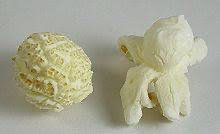
2 notes
·
View notes
Text
Heads up, name change coming whenever I feel like getting on my pc
#finally figured out what my new username is gonna be#changing stuff everywhere btw#ill set a pseudo on my ao3 for poem#but my main accounts are getting changed
4 notes
·
View notes
Text
Raise a Glass
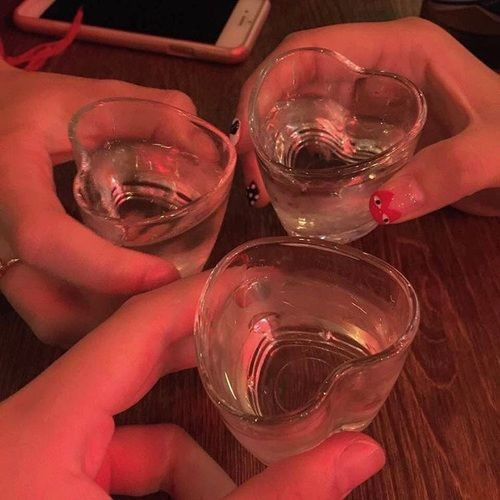
I'd like to make a toast
A toast to my mother
For loving me in a way that's difficult to understand
But for loving me unconditionally
Nevertheless
A toast to my friends
For laughing with me until
Our ribs went numb
A toast to my world and also my books
For opening me up to a land of fiction
And preparing me to deal with the world
A toast to the complex mosaic of my childhood
Fleeting feelings and experiences
From the nebulous seething of memory
A toast to my museum-shaped heart
Where I keep all the people I ever loved
Where no one ever comes
And I'm watching over it for no one but myself
A toast to my favourite person
No one could touch the way we laughed in the dark
A toast to the teenage experience
The candy-coloured palettes of friendship bracelets
And the dreamlike solipsism
Of being the last one awake at a sleepover
A toast to the summers
With which I measure my life
16 years of my homeland
A feeling I will yearn for the rest of my time alive
A toast to the divine feminine
The beauty and grace
And the incomparable joy and melancholy
Of being a girl
A toast to my music
A delicate art of using someone else's poetry
To express how I feel
A toast to the sun and the moon
My second mother and my second father
Whose light and shadow I bask in
Whose guidance I look up for everyday
A toast to all the reminders of me
All the times I heard
"I saw this and thought of you"
The imprint of my existence
Small proofs that I matter
A toast to all of these things
And much more
For giving me reasons to keep living
And make it worth living for
And a toast to the mirror
I am looking at the image of me
That I do not recognize
A stranger whom I will get to know
A stranger that I am excited to meet
#poetry#poem#original work#original writing#original poetry#pretty#aesthetic#art#ambient#dark academia#spilled ink#prose#spilled feelings#feelings#literature#life#musing#i literally do not KNOW#poetry tag#pseudo poetry#heartache#feminine divine#love language
8 notes
·
View notes
Text
THEY DEACTIVATED?
#patxt#people beat their ass so bad omg and I don't feel bad everything they wrote was really really bad + they used#Holocaust imaginery in pseudo deep shitty depression poem cmon.
2 notes
·
View notes
Text
Poem: A Gestational Father on Seahorse Day!
Poem: A Gestational Father on Seahorse Day!

View On WordPress
#Binary Myth#Celebrations#Family#Gestational Father#Happy Seahorse Day#Hermaphrodite#Intersex#Intersex Erasure#Intersex Erasure Hurts#Intersex man#LGBTQIA+#Poems#Pseudo Hermaphrodite#Relationships#Seahorse Dad#XX Intersex Man
2 notes
·
View notes
Text
After a few minutes of drifting
I opened my eyes.
I had a body, i existed.
I could hold a physical form.
Things looked - not better
But they looked like something
I was able to look at them again.
°
°
°
Everything's so tiring
Why do i feel like this?
Having a body is certainly
Is certainly something is certainly annoying
But if i complain about my body and my mind
What is left?
°
°
°
Every moment is eternal
Oh right, this is what it's like
Feeling like shit
I forgot.
It will get better
In an eternity.
#oh this? this is frankenstein's pseudo-poem#and also something my mind vomited while being sick#can i post something completely unedited and call it my unique style?#writers and poets#spilled words#spilled ink#spilled poetry#my poem#original poetry
0 notes
Text
己が實何と 云ふ物ぞ 元より在らぬ
唯一時に 群がれる 小粒共のみ
脆き體に 籠れたる 生きの儚さ
亂れに依りて 蝕まれ 無へと歸すべし
[Kana transliteration]
おのがみなにと いふものぞ もとよりあらぬ
たゞひとゝきに むらがれる こつぶどものみ
もろきからだに こもれたる いきのはかなさ
みだれによりて むしばまれ むへときすべし
[Classical transliteration]
Ono ga mi nani to / ifu mono zo / moto yori aranu
Tada fito-toki ni / muragareru / ko-tubu-domo nomi
Moroki karada ni / komoretaru / iki no fakanasa
Midare ni yorite / musibamare / mu fe to ki-su besi
[Modern transliteration]
Ono ga mi nani to / iu mono zo / moto yori aranu
Tada hito-toki ni / muragareru / ko-tsubu-domo nomi
Moroki karada ni / komoretaru / iki no hakanasa
Midare ni yorite / mushibamare / mu he to ki-su beshi
[English translation]
Essence—no such thing ever hath existed to begin with
‘Tis naught but a temporary cluster of particles
Immured within the brittle body is the ephemeron of life
Devoured by entropy it shall return to nihil.
#poetry#poemoid#thoughts from the beyond#pseudo-classical japanese#classical japanese#擬古文#古文#文語#古典日本語#author’s notes below#to document my thought process#‘essence’ → 己が實 ono ga mi (literally: self-seed); which I modified from 己が身 ono ga mi ‘I; myself’#the kanji 實 I took from 實質 jisshitsu (the modern word for ‘essence’)#‘cluster; swarm’ → 群れ mure or 群がり muragari; in the poem it appears in a verb form 群がる muragaru#‘particle’ → there’s no word for ‘atom’ or ‘molecule’ in classical japanese so I went with 小粒 ko-tsubu ‘small grain’#(also it is kind of an inverse of 粒子 ryūshi which is a modern word for subatomic/elementary particle)#(I say reverse because the prefix ko- can be written either with 小 or 子)#生き means ‘life; vitality’ but it also sounds the same as 息 iki ‘breath’#(unsurprisingly the ancient japanese too made a connection betwixt life & breathing)#(intially I wanted to go with 命 inochi which is a common word for ‘life’ but it had 1 too many syllable)#(so i went with 生き & in so doing the relation betwixt 生き & 息 dawned upon me)#(& I do think these words are related; although I might be proven wrong)#(I guess me being giddy that I stumbled upon this connection is me re-enacting the monkey brain pattern recognition thing)#‘entropy’ → another non-existent word in classical japanese; substituted that for 亂れ midare ‘disorder; disarray’#蝕む mushibamu has an additional meaning of ‘being eaten by worms or maggots’#(蟲 mushi basically means any kind of insect; worm; &c.)
0 notes
Text
hey i dont know if this is the place to ask this but i want to start reading poetry, preferably queer. does anyone have any recommendations?
#i’ll take anything really#i dont know a thing about poetry but i want to learn#and not just the ‘pseudo deep poem with a starbucks’ instagram post style stuff#i dont know anyone who likes poetry and don’t have a clue where to start
0 notes
Text
We relinquish our power the moment we start raising children
#Loss of power#Identity crisis#Power#Self#Pseudo haiku#Poem#Poetry#motherhood#Parenthood#Fatherhood#Child#Children#self reflecting#thoughts#Reflection#Words#true words
1 note
·
View note
Text
I’m glad
I’m glad,
I swear that its true,
I unmasked your heart,
I wasn’t amused
I wanted to kiss you,
Take you on dates,
I wanted to gift you all of my firsts
I held your hand and pretended to get
What your laugh meant,
How your brain worked
What does this mean?
I thought by myself
Promising kisses, dreaming away
I wanted to be the girl you brought home
Forgetting to ask you how you felt
Im glad,
Im glad
I’m learning the truth
That I wasn’t ready
And neither were you
0 notes
Text
Growing Pains
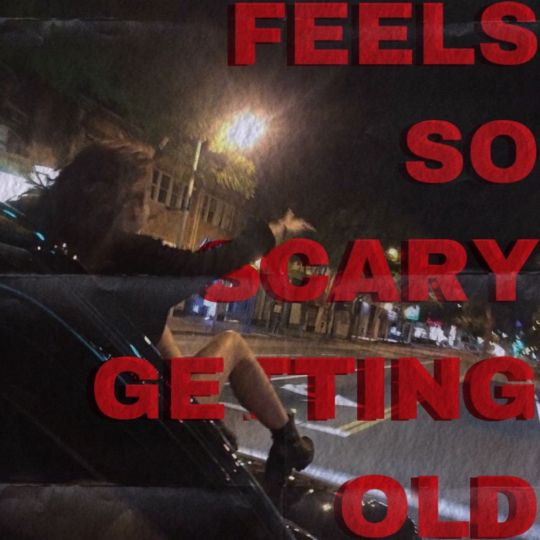
I think up until I became 16, all I wanted was to be older.
When I was 6, I wanted to be 10.
And when I became 10, all I could think about was when I would be 13.
Then I became 13, and I desperately wanted to be 16.
But now I'm 16,
sweet and sacrosanct, I'm finally having my coming-of-age movie.
And of course, it's just 16, it's not that big of a deal.
But I have grown up, just like I wanted back then.
And it's different because now there's nothing more I want than to be a little girl again.
To go back to being 13,
when the things I thought about most weren't college or politics and wars or whether I had a real personality,
but laughing so hard with my friends that our ribs would be sore for days,
or how to get into trouble and out of trouble
and convincing my mother to wear what I want.
To go back to being 10,
when things didn't have to be so difficult like doing well in school or trying not to screw up friendships,
and it was easy to finish a 300-page book in a week and to impress adults and be lauded by academic validation.
To go back to being 6,
when the things I would cry about weren't fear of rejection and failure or never amounting to anything,
but falling and scraping a knee or
being stung by a bee,
or being sad just for the sake of being sad, all just to be held, kissed, have my tears wiped away and hear my mother say to me, "It's all going to be okay."
Up until I became 16, all I wanted was to be older.
Now I'm 16 and whenever I feel particularly exhausted of being grown up, I sometimes pray for a chance to be a little girl again.
Messy and carefree and the princess of her childhood streets.
#poetry#poem#growing pains#original work#original writing#original poetry#pretty#aesthetic#art#literature#ambient writing#ambient#dark academia#spilled ink#spilled poetry#feelings#life#musing#pseudo poetry#melancholy#prose#poets of tumblr
3 notes
·
View notes

